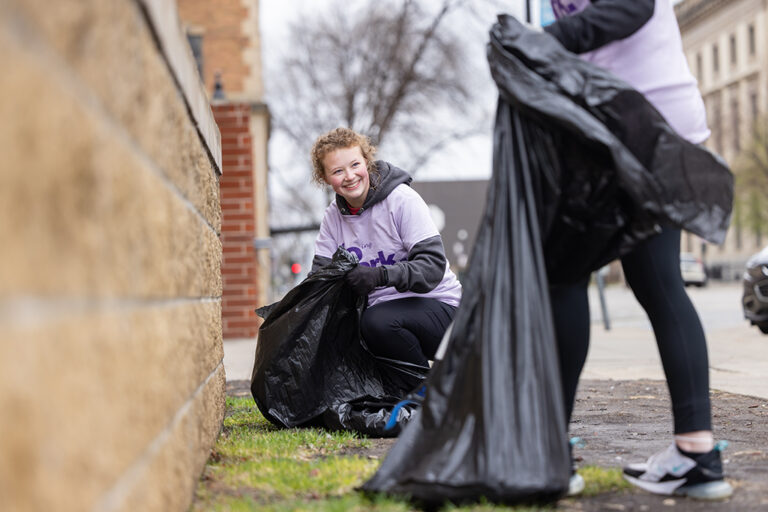Wisdom of the ages
At the Turtle Mountain Reservation and elsewhere, tribal members strive to maintain traditional values in a modern world, Indigenous Peoples Day speakers say
For centuries, there has been great loss across Indian Country. But more recently, and especially where tribal histories and traditional cultural practices are concerned, there have been gradual but important elements of restoration.
One such element is the fact that Columbus Day has evolved into Indigenous Peoples Day in several states and many local jurisdictions, including Grand Forks, said Vincent J. Grant, an activist and member of the Turtle Mountain Band of Chippewa Indians.
“Indigenous Peoples Day is a day to celebrate what came before and what we have now,” Grant said.
“It’s a day to honor those who’ve done everything they can to ensure we are resilient, we’re still alive and we’re still here.” Moreover, as recent events on the Turtle Mountain Reservation and elsewhere show, the wisdom of traditional Native American teaching is being more and more widely recognized, Grant said.
Grant and JT Shining Oneside, a Turtle Mountain Chippewa teacher and elder, spoke via Zoom on Monday as part of an Indigenous People’s Day event sponsored by UND’s Native American Law Students Association.
In honor of Indigenous Peoples Day, the University of North Dakota also released a special video (above), detailing the reasons for and background behind UND’s recently approved Land Acknowledgement Agreement (LAA) – an official recognition of the University’s position on ancestral homelands of regional American Indian Tribes.
Due to the on-going pandemic, the video was done in lieu of an in-person celebration on campus. The video is hosted by Stacey Borboa-Peterson, director of UND student diversity & inclusion, and includes interviews about the development of the LAA with Keith Malaterre, an American Indian student success specialist at UND.

Traditional ways
During the Zoom talks sponsored by the Native American Law Students Association, Shining Oneside spoke about the traditional culture of the Turtle Mountain Band, while Grant talked about current issues facing Native American tribes and their members. Specifically, Grant spoke about the recent and successful efforts to have Two-Spirited Rights recognized by the Turtle Mountain Band.
Shining Oneside, a North Dakota Native American Essential Understandings elder, is an Anishinaabe and Michif language speaker, storyteller and writer of cultural curriculum. She’s currently the culture, tribal history and government teacher at Dunseith High School in Dunseith, N.D.
Consider the lessons that might be learned from studying the traditional, pre-colonial governance of the Ojibwe people, Shining Oneside suggested.
Originally, for example, leadership was bottom-up, not top-down. “Leaders rose as needed,” she said.
“If we needed a war council, the war council rose, and they worked together to decide what would be done. And medicine people rose, if they were needed.
“Whatever type of council was needed, they rose; and once they were not needed any more, they went back to being normal men and women.”
Likewise, “we had traditional grandmothers who dealt with leaders,” she said. “If the leaders were not doing their jobs the way they were intended, the traditional grandmothers could go and ask for their wampum belt and say, ‘You’re not doing things the way they should be done.’” Then the grandmothers could give the wampum belt – which served as a kind of certificate of leadership – to somebody else.
“We had restorative justice,” she continued. “For example, if a person wasn’t taking care of their family, then the aunts and uncles who were a part of that family would go and talk to this individual. They would see what the problem is.
“And that individual would have to do the restoration for their behavior and follow what was needed,” she said.
In these and countless other ways, the traditional ways imbued life with beauty, spirituality and meaning, Shining Oneside said. In the absence of those ways and in colonialism’s wake, the ill effects have included homelessness, loss of identity, family breakdown, high infant mortality rates and other signs of distress.
Nevertheless, the interest in and appreciation for traditional Native American culture now is growing in encouraging ways, she said. The celebration of Indigenous Peoples Day is one such sign.
Change at Turtle Mountain
So is what happened in Belcourt, N.D., this summer, when the Turtle Mountain Band of Chippewa became the first tribal nation in North Dakota to recognize same-sex marriage.
Grant was among the activists who helped bring about that change. “I identify as Two Spirited, which is an umbrella term that represents lesbian, transgender, mixed gender and queer Native Americans,” he said.
And as Grant has learned, respect for Two Spirited people also was a part of the traditional Ojibwe culture that Shining Oneside described. As one elder explained, Grant said, “we were protectors, and when our warriors went out, it was the Two Spirited people who would assist in protecting the mothers, the children and the elders.
“We definitely had a place in our tribe, and we were respected.”
But colonialism eroded that aspect of traditional culture, too. “One of the things that was stripped from us was the love and respect for Two Spirited people,” he said.
“Our people were forced to believe that the love between our Two Spirited people should not be accepted.”

In 2015, when the U.S. Supreme Court legalized gay marriage nationwide, Grant was in Minneapolis; and along with many in the community there, he rejoiced. “I was on Cloud 9,” he said.
“But then I returned to my tribal nation, and there wasn’t any rejoicing. There weren’t rainbows everywhere, like there were in Minneapolis.”
That’s because tribal nations are sovereign, so the legalization of gay marriage didn’t apply to the Turtle Mountain or other federally recognized tribes. Until this summer, that is, when Grant and others on the Turtle Mountain reservation marched and lobbied the tribal government in favor of the change.
“And so, on Aug. 6, the Tribal Council exercised our sovereignty and made one more decolonizing decision to send a message of love to my Two Spirited relatives and I,” Grant said.
“I now get to look back on that day, and remember it as the day my nation was filled with rainbows, love and rejoicing.
“Migwetch (thank you),” Grant concluded. “Love is love.”



